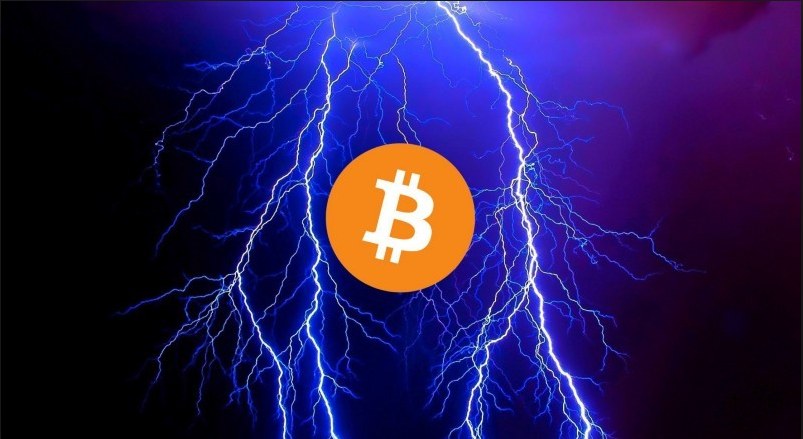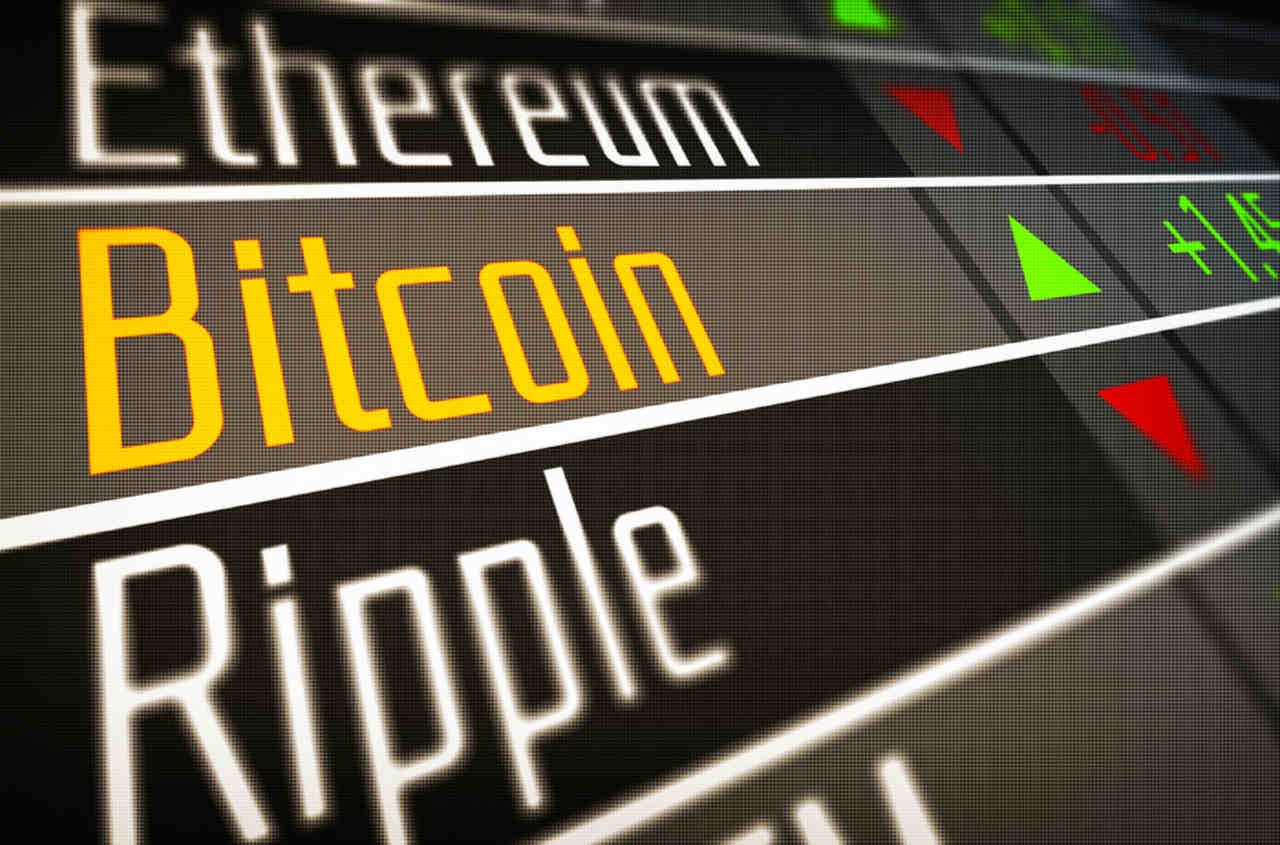Viewpoints | Several major issues that Bitcoin still needs to solve in 2019 (I)
When you spend a lot of time defending Bitcoin to ignorant people, this makes people mistakenly think that you prefer Bitcoin, and in fact Bitcoin has a lot to improve.
There are three types of ignorance about Bitcoin when defending Bitcoin:
1. These people have no clue about the concept of bitcoin, and are dominated by the media and their favorite politicians. Such people's evaluation of bitcoin is almost universally negative.
2. Some people have a little understanding of Bitcoin, but they raise the issue of any part of the ecosystem to the complaint of the entire Bitcoin concept. (For example, when a private company operating an exchange is poorly managed and hacked to cause customers to lose bitcoin, people blame it on "bitcoin").
- Zhu Jiaming recommended: CFMI pass financial model and stable currency mechanism
- Bitfinex and Tether insist that there are no New York users, and their IEO projects are falling.
- Academic to big coffee | Hu Jie: Blockchain is just a tool, awesome for finance
3. Those who know the status quo of Bitcoin have not noticed changes and improvements in this concept because it is software.
Generally speaking, for the first and second types, this naive worldview must be treated with patience. We only need to introduce them to Bitcoin. We often say that “bitcoin is digital gold and has gold. All the advantages, but it has no weight, can be infinitely divided, no expensive machines, can be carried around the world." But this article is about the third point. At this point, I pointed out the frustrating use of Bitcoin and how it can be improved. The title of this article is to draw the attention of the first and second people, who will use it to prove their ignorance that the entire unsafe asset class belongs only to drug dealers and terrorists, while telling the third person Its whereabouts. With the increase in the utility of Bitcoin, all three have become users of this technology, or at least a third person has dramatically expanded to marginalize ignorant people.
This article is tailored for Bitcoin, not for the entire blockchain, cryptocurrency, and distributed ledger technology (DLT).
1. Account type and incompatibility
It is now 2019, there are 7 different types of bitcoin addresses, which is a long time ago. The Bitcoin address is the way to identify your account and other people's accounts. There are at least 7 available address types, which are very complicated and ridiculous, but you also need to know. The following seven types are introduced separately:
(1) V1 bitcoin address. They start with the number 1 and have a string. The author's alias 1Blockologist is a tribute to the V1 bitcoin address. Example: 17ausmvhwddgjw6stqg1ofgfng5m47kdfz.
(2) Use P2SH's multi-signature bitcoin address. These start with the number 3 and are joint accounts. One way Bitcoin ownership becomes safer is that your computer may be hacked, but hackers cannot move Bitcoin because it requires other account holders to authorize transactions as well. You can have an account that requires 2 owners, or an account that requires 3 owners but only 2 owners can authorize transactions, or even more.
(3) Invisible address. Implement privacy protection for hidden senders, receivers, and amounts. Few people use this, only Darkwallet has been used briefly in 2013, and there are flaws due to linkability with previous transactions.
(4) V2 bitcoin address, isolated witness V1. These addresses also begin with a 3, and the purpose of isolating Witness V1 is simply because all Bitcoin clients that use the V1 Bitcoin address do not recognize the known, better isolated Witness V2 (bech32) address. You can't tell if an address is a P2SH multi-signature address or a quarantine witness address until its owner spends it. This is the same in 2016, 2017 and 2018. But the quarantine witness v1 address can also be a multi-signature address using P2WPKH or whatever.
(5) V3 bitcoin address, isolated witness V2 (bech32). These addresses start with bc1 instead of 1 or 3. This is the gold standard for Bitcoin addresses. They take up less space in the Bitcoin transaction process, allowing more transactions to pass, increasing Bitcoin's trading speed. About 1.4% of Bitcoin is currently stored in this new address.
(6) Lightning network address. These are no longer addresses, but invoices. The same concept, you get a combination of letters and numbers, you send it a balance, or receive it from it. A flash network address is required to be created using a v2 or v3 bitcoin address. These measures have theoretically doubled the trading speed of Bitcoin, essentially offsetting all the criticism of the slow pace of bitcoin transactions. A new level of privacy has also been introduced because lightning transactions are not linked to previous transactions and there are no records stored on the chain (but some service providers may save the records themselves).
(7) Because I may have missed one. There are a few things that are brewing, such as confidential transactions, which will be much better than the secret addresses that were implemented before.
The problem with all of these account types is mainly forward and backward compatibility. For example, if you have an account, you cannot send/receive bitcoin to all users of the network. It now seems that this only relates to the wallet software that you happen to use to store Bitcoin, and this has no real impact on the user experience. Wallet developers who focus on V1 Bitcoin accounts will not implement anything related to the V3 bech32 Bitcoin account, and vice versa. Electrum is such a wallet, and bech32 was implemented as early as 2016. They let users know that Bitcoin is better, but it gives a very bad choice, and users basically don't use Bitcoin. Until the end was overtaken by competitors.
The good news for 2019 is that many wallets and exchanges have caught up. Please note that all of these things are at least 15 months behind schedule, as the entire quarantine witness concept creates a rift in the Bitcoin community. In order for the quarantine testimony to be possible, some features had to be removed, so it took about 15 months to reach a consensus and allowed the quarantine witness to innovate. For example, if there is no quarantine witness technology to first add bitcoin, lightning network is virtually impossible. You can compare other completely different evolutionary paths, such as BCH and BSV.
Back to the Bitcoin network, because no professionals use the bech32 address (type 5), and no professionals use the lightning network (type 6), Bitcoin has therefore stopped. The popularity of the V1 bitcoin address (type 1) and the isolated witness V1 (type 4) directly led to a slower bitcoin and a poor user experience.
In the half of Bitcoin's life, it has been the slowest cryptocurrency on the market. He has been the slowest and most scalable in the past five years, and American encryption enthusiasts must still shift the ignorant public from their totally illogical criticism.
The US banking system is still much slower, and it still takes 2 to 3 business days to transfer money between banks or brokerage firms. On the West Coast of the United States, banks open at 9 am Pacific time, with only 4 hours of business hours, 5 days a week, and bank transfers are more expensive on the day. Bitcoin transactions take 20 minutes in good condition, while transfers on other blockchains and distributed ledgers take about 1 minute.
The irony is that if the lightning network is more popular, Bitcoin may be faster than the competition.
2. Lightning Network

If Bitcoin's lightning network goes further, competitors' cryptocurrency/blockchain/distributed ledger technologies, such as Ethereum, Tron, EOS, Libra, etc., will lose their inferior position.
Large exchanges like Coinbase and Binance should operate the lightning deposit and withdrawal channels of the Lightning Network. They should have the right to choose — or force users — to use lightning networks. Online trading will only be a fast-opening and closing lightning payment channel, and no actual trading information is visible. This can alleviate their pressure on governments around the world. The governments of these countries are contemplating how to analyze the blockchain. If lightning networks are used, the government will be difficult to supervise and replace it with old-fashioned detectives, by issuing arrest warrants and subpoenas.
But lightning network software is not ready yet. Currently, users need to download the complete Bitcoin blockchain, which has a capacity of 220G and is growing, using their high-speed Internet to keep up with all new transactions, and then they must maintain 100% uptime. It is stupid to keep their lightning payment channels open. A solution called "The Lookout Tower" is coming soon, allowing third parties to reserve a payment channel for you. At the same time, you can buy a computer designed for this purpose for $300. ?
3. Assets

The value proposition of distributed ledger technology—primarily blockchain, and bitcoin is the first blockchain—has a large part of the ability to transfer all assets and contracts to the chain. This will create a reliable record that does not require the trust of fragmented obsolete municipalities, industry and industry regulators, and does not prevent the court from implementing all of these regulations.
Since 2013, Bitcoin has had the ability to issue assets and contract. Assets representing company shares, art, marriage alliances, and limited business products are stored on Bitcoin accounts.
The OMNI protocol is the main software that allows people to do this. Now, if you want to issue company stock without consulting any expensive law, CPA or submitting an expensive Nasdaq listing application so that people can trade your stock seamlessly, you can use the OMNI protocol in Bits. Trading on the currency network.
It's just that other competitor blockchains can do this now, faster, at a lower cost, and have a very strong infrastructure to trade these assets. Many organizations have migrated to better blockchains or skip bitcoins altogether. Tether has been a news hotspot for New York State regulators, an asset issued under the OMNI agreement.
Bitcoin runs slowly and is expensive to operate, but issuing assets on the OMNI protocol is slower and more expensive.
But OMNI didn't even keep up with the changes in Bitcoin. For example, OMNI assets can only be used in V1 bitcoin addresses (type 1) and only in P2SH multi-signature addresses (type 2). It is basically impossible to batch transactions, which means that only one transaction can be sent to multiple transactions at the same time. Recipient. This will directly lead to Bitcoin's maximum trading speed and congestion, while the Tether transaction is the primary or only asset using Bitcoin.
Even Tether is trying to migrate to other blockchains as quickly as possible, releasing mirrored Tether on the Ethereum blockchain and the Tron blockchain. They even accidentally created a $5 billion USDT on the Tron blockchain, but in reality they mean only $50 million. (The extra part is quickly burned out transparently, and it doesn't exist anymore.)
Although the Bitcoin Lightning Network is currently faster than all of these competing blockchains, no OMNI assets can be sent through it.
This may be a limitation of Bitcoin's irreconcilability, but it also depends on the ideas and priorities of OMNI developers.
Every bitcoin transaction is just a database entry, which we call a blockchain here. In addition to the "Amount", "Sender" and "Recipient", each entry has a small space to hold additional metadata. In the past every bitcoin address V1 used this extra space to enable joint accounts, lightning network payment channels, OMNI asset creation and delivery, marriage and derivatives contracts and anything else you can think of in a transaction. As long as the information fits this extra space in a human or machine readable format. The problem is that you may not be able to put OMNI/Joint Account/Lightning Payment Channel/Multiple Recipients in the same extra space. Adding extra space means the size of the 220 G blockchain. For those who must store the blockchain (miners, lightning network enthusiasts), they will not upgrade the software to a version that requires more transaction space, while Bitcoin only Most of them use compatible software to run.
As a result, OMNI assets cannot be made better or faster and may not be transmitted over the Lightning Network in 2019 or later. I used to see someone doing this on youtube, but warned that you might accidentally delete your assets.
4. Exchange

First of all, you should not store your bitcoin on the exchange. But by 2019, people will still do this, and people will be surprised when the exchange is maliciously attacked by hackers or the exchange is not doing well. Something that is preventing you from accessing digital assets is happening.
Using exchanges and owning Bitcoin is counterintuitive for Bitcoin traders and enthusiasts, so let's try to imagine the difference with other financial institutions.
How to use your bank account: Deposit -> Withdrawal -> Go to your personal wallet.
How to use your stock trading account: Deposit -> Buy Stock -> Exit and leave, or Sell stock -> Withdraw -> Exit and leave.
How should you use your Bitcoin trading account: Deposit -> Buy Bitcoin -> Extract Bitcoin -> Bitcoin in your personal wallet. Or save in Bitcoin -> Sell Bitcoin -> Take the USD out of your personal bank account.
But people use bitcoin trading accounts as stock trading accounts. They deposit dollars, buy bitcoins, and then quit. The exchange was hacked and everything they left was stolen. If Bitcoin is not in your personal wallet, it is not your Bitcoin. In layman's terms, this is "not your key, not your bitcoin." No one here will sympathize with you and there is no regulatory agency to compensate you.
Progressively, more exchanges use at least multi-signature technology. In this case, the client funds are stored in the federated account, so when the hacker invades the system, they still need to attack multiple executives and third parties at the same time in order to transfer the bitcoin to an unknown address.
In addition, some exchanges now have private insurance, as well as a variety of other methods of salvaging or bailing customers. But only a few market-leading exchanges have this capability. Now more exchanges than ever before do not do this, but it doesn't matter on the system.
Although there are at least a few places where customers can have a little confidence in their money, it is still not enough.
By 2019, there are basically no brokers, and exchanges are still different from traditional exchanges, which provide direct market access for retail investors. There is currently no shared pool of liquidity available to retail traders, which prevents customers from matching orders placed on different exchanges. And these costs have not brought benefits to liquidity makers.
The massive proliferation of exchanges is due to the availability of vendors of sales technology, they have exchanges, and you can buy them for thousands of dollars. These things are complicated. I have received several sales calls in the past year and I was told how their exchange software and competitors are different. Therefore, all exchanges only need to authorize the software and package it, and have the following characteristics: sub-account, broker function, shared mobility pool using FIX protocol, websockets, REST, and so on. It's really advanced, but there are no exchanges that support these features. Do you know why?
The exchange charges customers excessively high withdrawal fees, overcharges for some additional digital assets, excessive fees for providing services, excessive commissions for customers, and so on. Most of them do not apply to Bitcoin, but this is the exchange's business plan. If they provide kickbacks to liquidity makers and only charge liquidity recipients, they can get much more business. It will create liquidity as its own business plan and engage people in competition.
But the situation is getting better, let's take a look next year.
Source: Hackernoon
Author: Eric Lamison-White
Translation: Bitker Institute
Website: https://hackernoon.com/everything-wrong-with-bitcoin-in-2019-bl803xp9
Disclaimer: This article was compiled by Bitker Research Institute. The Bitker Institute focuses on theoretical exploration, technology development, and secondary market analysis in the blockchain industry.
We will continue to update Blocking; if you have any questions or suggestions, please contact us!
Was this article helpful?
93 out of 132 found this helpful
Related articles
- I read through Ethereum 2019: Ecological development is too fast like a tornado
- The pace of competition is accelerating, how can the new exchange break with the finer operations?
- CIC Research: The "Dollar-Libra" System May Create the Next Peak of US Dollar Hegemony
- What is the future of Bitcoin? These 7 CEOs may be able to tell you the answer.
- Should the loss of $23 million in cryptocurrency due to the theft of the SIM card, should not blame the telecommunications company?
- The latest evaluation of the blockchain by 11 national leaders and politicians, or the future global regulatory “wind vane”
- Director of the Institute of Financial Law of the Central University of Finance and Economics: the circumstance of digital currency issuance






